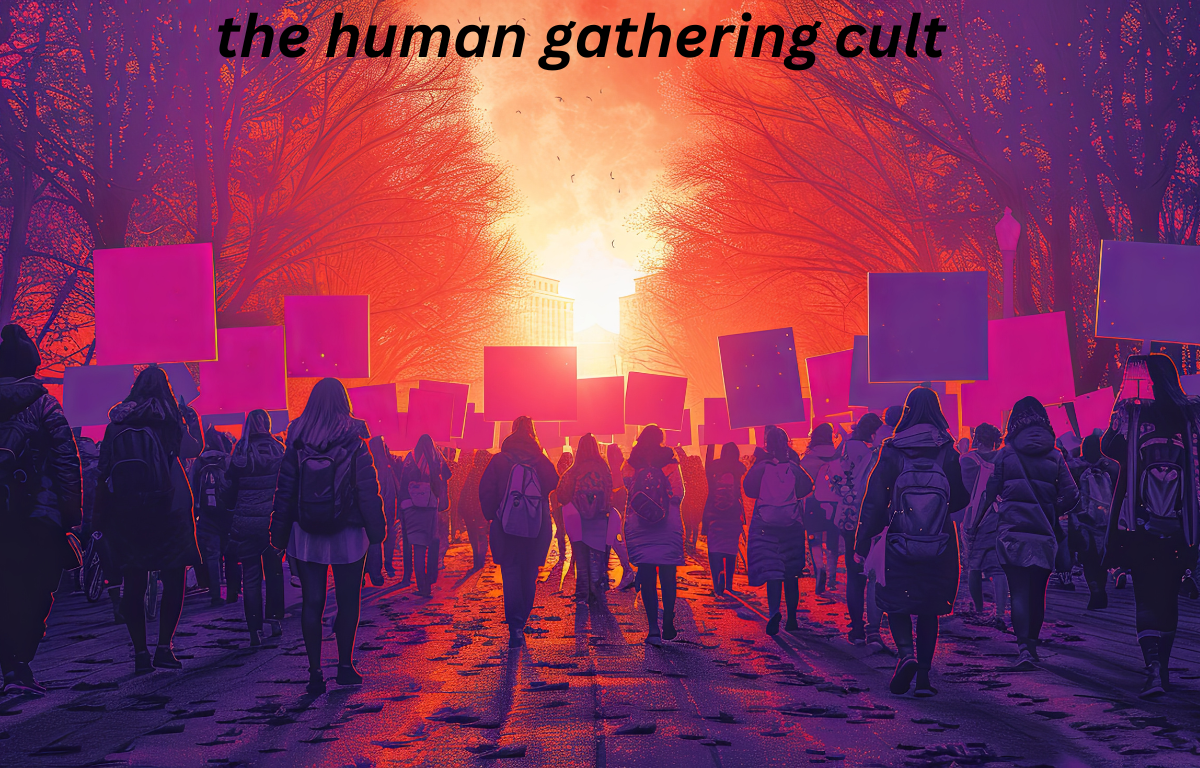The Human Gathering Cult One of The Fascinating Ideology
Introduction
Social, religious, or ideological gatherings of people have always been important to civilization. But when these organizations turn into what are usually called cults, pictures of indoctrination, seclusion, and fanaticism are frequently conjured up. However, the truth is more complex. Certain the human gathering cult can be deceptive and dangerous, but there are other benign spiritual groups that offer a feeling of purpose and connection. This essay will examine the intricate phenomena of human gathering cults, looking at their traits, psychological foundations, and the impact of technology on their development.
Types of Human Gatherings
Religious assemblies include some of the oldest and most resilient human societies. These organizations, which offer social support and spiritual advice, are typically built around common rituals and beliefs. Though certain religious movements with extreme ideas and practices might cross the line into The human gathering cult territory, major faiths are not classified as the human gathering cult. For those who attend, religious assemblies frequently act as pillars of stability and community, providing consolation and direction through life’s obstacles.People are brought together via social clubs on the basis of shared interests, pastimes, or professional links.
Characteristics of The Human Gathering cult
A charismatic leader is a defining characteristic of the human gathering cult. This person frequently has a great deal of power over the group, demanding complete obedience and allegiance. They have a captivating charisma that draws others in and gives them a sense of worth and understanding. These leaders frequently have captivating visions and outstanding communication abilities, which they utilize to sway and influence their people.Members of the human gathering cult frequently cut themselves off from the outside world. A person who experiences physical, emotional, or social isolation may become dependent on the group and its leader for all kinds of assistance and approval.
Distinct Belief Systems
Usually, the human gathering cult have a unique set of beliefs that distinguishes them from the general public. These views, which might be philosophical, political, or spiritual, frequently require members to adhere to them to the letter. The the human gathering cult’s beliefs form the cornerstone of its philosophy, influencing its customs, rituals, and outlook on life. When someone deviates from these ideas, they are frequently punished or shunned, which encourages group uniformity.
Intense Group Dynamics
Within the human gathering cults, group dynamics are severe and pervasive. It is recommended for group members to put the group’s needs ahead of their own, which forges an enduring feeling of cohesion and shared identity. Members’ devotion to the organization and its leader is strengthened by communal living conditions, rituals, and group activities that create a strong sense of camaraderie and belonging.
The Dual Nature of The Human Gathering Cults
Not every the human gathering cult is dangerous. Some serve as harmless spiritual groups that provide companionship and a feeling of community without indulging in harmful or exploitative activities. Members of these groups may benefit from chances for personal development and positive reinforcement.Conversely, certain the human gathering cult may be quite harmful. These organizations use psychological tricks to control its members’ thoughts and behaviors. Serious repercussions may result, such as bodily damage, emotional abuse, and financial exploitation.
Psychological Underpinnings
The social identity hypothesis contributes to the understanding of why people join the human gathering cult. People associate with organizations that provide a distinct feeling of purpose and belonging in an effort to improve their identity and sense of self. The human gathering cult take advantage of this desire by offering a compelling, sometimes enthralling, sense of collective identification.People who sense discomfort when their views and behaviors are discordant are said to be experiencing cognitive dissonance. The human gathering cult take advantage of this by establishing conditions in which members are required to constantly align their beliefs with the organization, which frequently results in internal struggle and ultimately compliance.
Conclusion
In summary, the phenomena of people gathering cults is a complicated and multidimensional problem that has to be carefully studied and comprehended. Certain The Human Gathering cults may offer its adherents a feeling of belonging and purpose, but others have the potential to cause serious psychological and societal harm. Through the identification of warning indicators of cult membership and the encouragement of critical thinking and resilience, we may collaborate to prevent manipulation and shield vulnerable people from exploitation.
FAQs
What defines a cult?
A cult is typically characterized by its charismatic leader, isolation from society, distinct belief system, and intense group dynamics. Cults often exhibit manipulative tactics and may cause harm to their members.
How do cults manipulate their members?
Cults employ various psychological tactics, including love bombing, fear tactics, and controlled information, to manipulate and control their members. These tactics create dependency and foster obedience to the cult’s leader and ideology.
Are all cults harmful?
Not all cults are inherently harmful. Some cults function as benign spiritual communities, offering support and a sense of belonging to their members. However, others can be destructive and manipulative, causing psychological, social, and even physical harm.
Can technology help in preventing cult influence?
Technology can both facilitate and hinder cult influence. While online platforms can create echo chambers and information bubbles that reinforce cult ideology, they can also provide opportunities for education, awareness, and support for those at risk of cult involvement.
What should you do if someone you know is involved in a cult?
If you suspect that someone you know is involved in a cult, it is essential to approach the situation with empathy and understanding. Encourage open communication and provide emotional support while gently expressing your concerns. Offer resources and assistance in seeking professional help or cult recovery support if needed.




